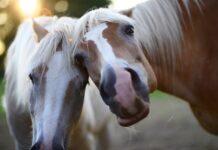What makes a farm a farm?
Now, I’m not talking “official” terms, like what the Agricultural Census Bureau would say. I’m talking about what the people who matter would have to say when they weigh in on such important matters.
I’m talking about you. What do you think? What brings this subject to mind is just one of those random moments spent talking with a total stranger. We both were waiting at a coffee counter one morning not long ago, and she saw me holding my latest copy of Farm and Dairy.
She struck up a conversation, mentioning that she had read the paper and wanted to get her daughter a subscription since she and her husband have a farm.
Farm
I said, “Oh, what type of farm do they have?” and her answer came just as I took my first sip of coffee.
“It’s a large do-it-all kind of farm. They have something like, oh, 5 or 10 acres!”
She went on to explain that she had grown up in Euclid, Ohio, where the houses are so close and so small that you could reach your arm out and practically touch the neighbor’s windowsill. So, to her, that 10-acre farm seems so incredibly spacious.
To me, having grown up on a wonderfully spacious farm where the wide open fields flow to a large creek and then on to another huge field where the only sounds to be heard were the trills of Mother Nature, I nearly did one of those Lucille Ball spit takes with my first sip of coffee, though I wouldn’t have meant any harm.
I am grateful that I thought to tell her how happy I am for her daughter, then handed her my Farm and Dairy so she would have the subscription information she needed.
Differences
It set my mind to thinking about the mighty differences we all hold in a wide variety of perceptions. My Great-Grandpa Charlie thought farmers were losing their minds when they gave up their horses for tractors.
“You can’t train a tractor to do a single thing … what in the world is farming coming to?” he said to my father dozens of times.
Grandpa Charlie thought farming 30 acres or 40 acres with his horses meant that he was living in the land of plenty, and he saw no sense in growing a farm into hundreds of acres. He also thought paying for lights inside a house was ridiculous when lanterns worked just fine.
My father’s uncle, Dick Gruver, who died earlier this year at 91, told me of a friend who absolutely, positively refused to build a bathroom in his house.
“Why in all things sensible would somebody put an outhouse inside their house?” the man spouted off to anyone who would listen.
Progress and all sorts of changes come in many forms. The perceptions that we each hold in regard to what makes a farm a farm lies right along this same path.
Louis Bromfield, the writer from Ohio who saw several of his books become Hollywood movies, always contended that what made him happiest was being a farmer. He continued to live on and love his Richland County farm until the day he died. Hollywood might have pulled a lesser man in to the trappings of fame.
Joy
Bromfield found more joy riding to the top of Mount Jeez with his boxer dogs beside him in his open Jeep, looking over his lovely Malabar Farm from that high vantage point.
One thing I have gleaned from Bromfield’s writings, and I enjoy his farm writings best, is this: We all can farm, even if all we have is a sunny windowsill or a terrace or a tiny patio. He encouraged people to grow their own food, to rely less and less on the super powers that he felt controlled our freedom far too much, reining us in to no longer think — and produce — for ourselves.
He was thinking and writing this way back in the 1950s when no one else had even begun to worry about our natural resources drying up or being eaten up in all sorts of ways.
Suddenly, the news today is carrying reports of food shortages. It turns out that Mr. Bromfield was far ahead of his time in this line of thinking. People are now coming to the realization that not only is it wise to make use of what land each of us have, even if it is only a tiny patch of grass, but it is a decision that is good for our families in many ways.
Food production
If we grow it, our children learn there is work and responsibility involved in food production and we know what we put on the table is hearty and good.
Aside from the production part of farming, we all long to go to a place where we can be ourselves, and a farm allows that in a way that nothing else can provide.
One friend of mine, in answering the question which opened this column, replied, “As long as there is a barn, any size barn, that has a rope hanging down to grab ahold of and swing from … that’s what I call a farm!”
Sounds good to me!












